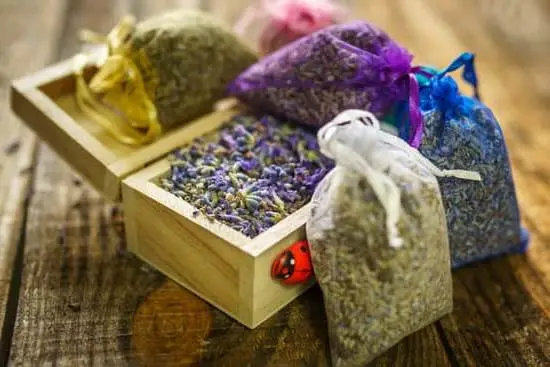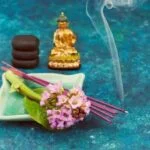Aromatherapy has been used for centuries as a natural way to promote health and wellness. Essential oils are at the heart of aromatherapy practices, offering a wide range of therapeutic benefits for both the body and the mind. These common aromatherapy essential oils are extracted from plants and have been found to improve physical, emotional, and mental well-being.
The history of aromatherapy can be traced back to ancient civilizations such as Egypt, where aromatic plant extracts were used for medicinal and religious purposes. Today, essential oils are widely used in aromatherapy for their natural healing properties.
They are highly concentrated extracts obtained from various parts of plants, including flowers, leaves, stems, and roots. When used in aromatherapy, essential oils can be inhaled, applied topically, or diffused into the air to promote relaxation, alleviate stress, elevate mood, and support overall health.
One of the many benefits of using essential oils in aromatherapy is their ability to address a wide range of health concerns naturally. From promoting relaxation and reducing anxiety to supporting respiratory health and boosting energy levels, common aromatherapy essential oils have become popular remedies for various wellness needs. In the following sections, we will explore some of these essential oils in more detail and learn about their specific therapeutic properties and applications in aromatherapy practices.
Understanding Aromatherapy Essential Oils
Common Aromatherapy Essential Oils
Common aromatherapy essential oils are those that are widely used in the practice of aromatherapy due to their therapeutic properties and versatile uses. Some of the most common essential oils include lavender, peppermint, tea tree, eucalyptus, and lemon. These essential oils have been used for centuries for their healing and aromatic qualities, making them popular choices for various wellness concerns.
Extraction of Essential Oils
Essential oils are extracted from plants through various methods such as steam distillation, cold pressing, or solvent extraction. Steam distillation is one of the most common methods and involves passing steam through the plant material to release the essential oil. Cold pressing is often used for citrus fruits to extract their essential oils. The method of extraction can affect the potency and aroma of the essential oil.
Methods of Using Essential Oils
Common aromatherapy essential oils can be used in different ways in aromatherapy practices. They can be diffused using a diffuser to disperse their aroma throughout a room, applied topically when diluted with a carrier oil, or inhaled directly from the bottle or from a cloth. Each method offers unique benefits and allows individuals to experience the therapeutic properties of essential oils in different ways.
Lavender Essential Oil
The Origins of Lavender Essential Oil
Lavender essential oil is one of the most popular and versatile essential oils used in aromatherapy. It is derived from the lavender plant, which is native to the Mediterranean region, but is now cultivated worldwide. The use of lavender for its aromatic and medicinal properties dates back thousands of years, with records of its use in ancient Egypt, Greece, and Rome. Its pleasant floral scent and wide range of therapeutic properties make it a staple in many aromatherapy practices.
Therapeutic Properties of Lavender Oil
Lavender oil is known for its calming and relaxing effects, making it an ideal choice for promoting sleep and reducing stress and anxiety. It also has anti-inflammatory, antiseptic, and analgesic properties, making it useful for soothing minor skin irritations and muscle discomfort. Additionally, lavender oil is often used to alleviate headaches and support respiratory health.
How to Use Lavender Oil for Relaxation and Stress Relief
There are several ways to incorporate lavender essential oil into an aromatherapy regimen for relaxation and stress relief. One method is through diffusing the oil in a room using a diffuser or inhaling it directly from the bottle. Another option is diluting lavender oil with a carrier oil (such as coconut or jojoba oil) and applying it topically to pulse points, temples, or the back of the neck.
Some individuals may also benefit from adding a few drops of lavender oil to a warm bath for a soothing soak. Regardless of the method chosen, using high-quality lavender essential oil can be a simple yet effective way to experience its calming benefits.
By incorporating common aromatherapy essential oils like lavender into daily routines, individuals can experience potential health benefits while simultaneously caring for their emotional well-being.
Peppermint Essential Oil
One of the primary benefits of peppermint essential oil is its ability to support digestive health. When used topically or ingested in small amounts, peppermint oil can help alleviate symptoms of indigestion, bloating, and gas. The cooling and soothing properties of this oil make it an effective natural remedy for various stomach issues.
In addition to its digestive benefits, peppermint essential oil is also widely used to relieve headaches and migraines. The cooling sensation provided by the menthol in peppermint oil can help reduce tension and promote relaxation when applied to the temples or forehead. Many people find relief from headache symptoms by inhaling the aromatic vapors of diluted peppermint oil or using a diffuser.
Moreover, the invigorating scent of peppermint essential oil makes it an excellent choice for boosting mood, increasing alertness, and promoting mental clarity. Diffusing this aromatic oil in your home or workspace can help create an energizing environment that enhances focus and productivity.
| Benefit | Usage |
|---|---|
| Aids digestion | Topical application or ingestion in small amounts |
| Relieves headaches | Topical application to temples or inhaling through diffusion |
| Promotes mental clarity | Diffusing the oil for an energizing environment |
Tea Tree Essential Oil
Common Uses of Tea Tree Essential Oil:
- Skincare: Tea tree oil is commonly used to treat acne and other skin conditions due to its antibacterial and anti-inflammatory properties. It can be applied topically to affected areas after diluting with a carrier oil.
- Respiratory Health: Diffusing tea tree oil can help purify the air and support respiratory function. Its antimicrobial properties make it beneficial for alleviating symptoms of congestion and cough.
- Household Cleaning: Due to its disinfectant properties, tea tree oil is an effective natural cleaning agent. It can be added to homemade cleaning solutions to sanitize surfaces without harsh chemicals.
Extraction Methods:
Tea tree essential oil is extracted from the leaves of the Melaleuca alternifolia plant through a process of steam distillation. During this process, steam passes through the plant material, capturing the volatile compounds that form the essential oil.
Precautions When Using Tea Tree Essential Oil:
While tea tree oil offers numerous benefits, it should be used with caution due to its potency. It is important to always dilute tea tree oil with a carrier oil before applying it to the skin, as using it undiluted can cause irritation or allergic reactions in some individuals.
Incorporating tea tree essential oil into your aromatherapy routine can provide a natural solution for various health and wellness concerns. Whether used for skincare, respiratory support, or household cleaning, this versatile essential oil offers a wide range of therapeutic benefits.
Eucalyptus Essential Oil
One of the main benefits of eucalyptus oil is its ability to provide relief from congestion and respiratory issues. When used in a steam inhalation, eucalyptus oil can help clear the nasal passages and ease breathing. It can also be diffused to purify the air and support respiratory health.
In addition to its respiratory benefits, eucalyptus oil is also valued for its antiseptic and disinfecting properties. This makes it an excellent natural option for cleaning and sanitizing surfaces in the home. Eucalyptus oil can be added to homemade cleaning solutions or used in a diffuser to cleanse the air.
| Benefit | Usage |
|---|---|
| Relief from congestion and respiratory issues | Steam inhalation or diffusion |
| Antiseptic and disinfecting properties | Homemade cleaning solutions or diffusion |
The invigorating scent of eucalyptus essential oil also makes it a popular choice for promoting focus and mental clarity. Its refreshing aroma can help combat feelings of fatigue and promote a sense of alertness. Whether used alone or in combination with other essential oils, eucalyptus oil can add a revitalizing element to any aromatherapy practice.
Lemon Essential Oil
When it comes to skincare, lemon essential oil can be used to address oily skin and acne. Its natural astringent properties make it an effective treatment for blemishes and excessive oil production. When combined with a carrier oil, such as jojoba or coconut oil, lemon oil can be used as a spot treatment or added to DIY face masks.
In addition to its topical applications, lemon essential oil is also widely used for household cleaning purposes. Its fresh and clean aroma makes it a great addition to homemade cleaning solutions. When combined with white vinegar or baking soda, lemon oil can be used to effectively clean surfaces while leaving behind a refreshing scent.
Furthermore, the invigorating aroma of lemon essential oil can help improve mood and mental clarity. Diffusing lemon oil in the home or workspace can help create a more uplifting and positive environment. Its crisp scent is often used in aromatherapy blends designed to boost energy levels and promote mental alertness.
Overall, lemon essential oil offers a multitude of benefits for both physical and emotional wellness. Whether incorporated into skincare routines, household cleaning products, or aromatherapy practices, this versatile oil has become a staple in many homes worldwide. Below are some common uses of lemon essential oil:
- Skincare: Add 1-2 drops of lemon essential oil to your daily moisturizer or use it as a spot treatment for blemishes.
- Household Cleaning: Create an all-purpose cleaner by combining 10-15 drops of lemon essential oil with white vinegar and water in a spray bottle.
- Aromatherapy: Diffuse 5-6 drops of lemon essential oil to uplift mood and create a fresh ambiance in your home or workspace.
As with any essential oil, it’s important to use caution and dilute properly before using it on the skin or inhaling through diffusion methods.
Conclusion and Tips for Using Aromatherapy Essential Oils
In conclusion, common aromatherapy essential oils have been used for centuries to promote health and wellness. From the relaxing properties of lavender essential oil to the invigorating effects of peppermint oil, these natural remedies offer a range of benefits for both physical and mental well-being. Whether used through diffusion, topical application, or inhalation, essential oils can have a powerful impact on our overall health.
When using aromatherapy essential oils, it’s important to do so safely and effectively. Always dilute essential oils properly when applying them to the skin, and be cautious about using certain oils around children or pets. It’s also wise to do a patch test before using a new oil topically to avoid any potential allergic reactions. Additionally, it’s crucial to purchase high-quality essential oils from reputable sources to ensure that you are getting pure and unadulterated products.
For those interested in incorporating aromatherapy into their wellness routines, there are many recommended blends available that address specific concerns such as stress relief, respiratory health, or energy-boosting. These blends often combine multiple essential oils to create synergistic effects that enhance their individual therapeutic properties. By exploring the world of common aromatherapy essential oils and experimenting with different blends, individuals can discover the unique benefits that these natural remedies have to offer for their holistic well-being.
Frequently Asked Questions
What Are the 10 Most Popular Essential Oils?
The 10 most popular essential oils include lavender, tea tree, peppermint, eucalyptus, lemon, chamomile, rosemary, cedarwood, bergamot, and frankincense. These oils are widely used for their therapeutic properties and pleasant scents.
What Essential Oils Can Be Used for Aromatherapy?
Essential oils that can be used for aromatherapy include lavender for relaxation, peppermint for mental clarity, eucalyptus for respiratory support, tea tree for purification, and lemon for uplifting mood. Aromatherapy with essential oils is a popular holistic practice for promoting well-being.
What Are the Top 20 Essential Oils?
The top 20 essential oils include a wide range of options such as ylang-ylang, geranium, sandalwood, jasmine, patchouli, clary sage, marjoram, and vetiver. Each of these oils has its own unique benefits and uses in aromatherapy and natural healing practices.

Are you looking for a natural way to improve your health and wellbeing?
If so, aromatherapy may be the answer for you.





